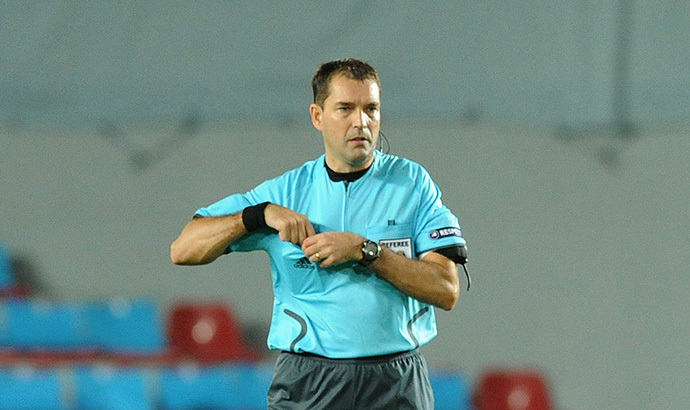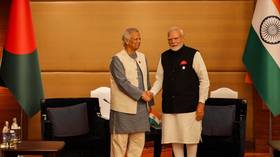Make them forget: How ‘irrelevant’ news disappears from Google searches

The fallout of the EU’s ‘Right to be Forgotten’ ruling has impacted a number of European news publications who suddenly found some of their “inadequate” and “irrelevant” pieces disappear from the web search engine results pages.
The search engine now stands accused of heavy-handedness by several media outlets, links to which have disappeared due to Google's fear of potential legal issues.
The Guardian, the BBC, and Sky News were among those who received an ominous email in the past 48 hours saying that certain articles could no longer be linked to – articles which arguably could be deemed both relevant and in the public interest.
“We regret to inform you that we are no longer able to show the following pages from your website in response to certain searches on European versions of Google,” read the email from the search engine.
“The ruling has created a stopwatch on free expression – our journalism can be found only until someone asks for it to be hidden,” the Guardian responded after learning that six of its articles had been obliterated from Google.
Google has now restored the links to the Guardian’s website, but has not reactivated a link to a BBC article.

In May, people residing in EU states gained the ability to request such “inadequate, irrelevant or no longer relevant” content be taken offline through the completion of a web form and the submission of one form of identification.
Some of the requests have been highly controversial. For example a pedophile called for pages about his trial to be removed from Google. The man, convicted of possessing child abuse images, submitted his request, immediately following the European Court ruling.
‘Why has Google killed this example of my journalism?’
BBC economics editor Robert Peston found that a 2007 post about the departure of former Merrill Lynch (which at the time faced “colossal losses”) chairman, Stan O'Neal, had been removed.
“Which means that to all intents and purposes the article has been removed from the public record, given that Google is the route to information and stories for most people,” he wrote in a vexed blog posting on the BBC website.
“So why has Google killed this example of my journalism?” he questioned.

Post-it note picture wars
Disgruntled Parisian office-workers resorted to filling their days by filling their windows with multicolored post-it notes in 2011, making pixelated pictures for one another on the outside of the business and media districts’ uniform buildings.
While Googling the legendary wars themselves wields result, the link will be invisible if searching for the (high profile and international) company names of some of the sites involved, who would presumably prefer to be found on the basis of their other merits.

‘Give me your damn shopping list, you senile old cow’
A Daily Mail story about UK supermarket chain Tesco employees posting abrasive and insulting comments about their customers was also removed from the search.
The story cited some of their online forum comments such as: “I wish these f******s would just stay at home and shop online!” and “Give me your damn shopping list, you senile old cow.”

Cathay Pacific discrimination allegations
Links to a Daily Mail story about a Muslim man who accused Cathay Pacific of discrimination have also been removed. Algerian-born Salim Zakhrouf applied to be a passenger services officer at London’s Heathrow Airport with his real name and his CV but was eliminated in the selection process for an interview.
However, when he changed his name to the much-more-English-sounding ‘Ian Woodhouse’ with the same CV, he was immediately summoned.

‘Scottish referee who lied’
At least three stories about, Dougie McDonald, a Scottish referee, have also been removed from the search engine results page. McDonald lied about his reasons for allocating a penalty in a Celtic v Dundee United football match.

Kelly Osbourne illness
Sky News received a notification from Google that a story about US TV personality and singer Kelly Osbourne being ill had been removed from its search results.
“Media organizations are not being given any reason for the deletions,” Sky mourned in its story on the matter.















